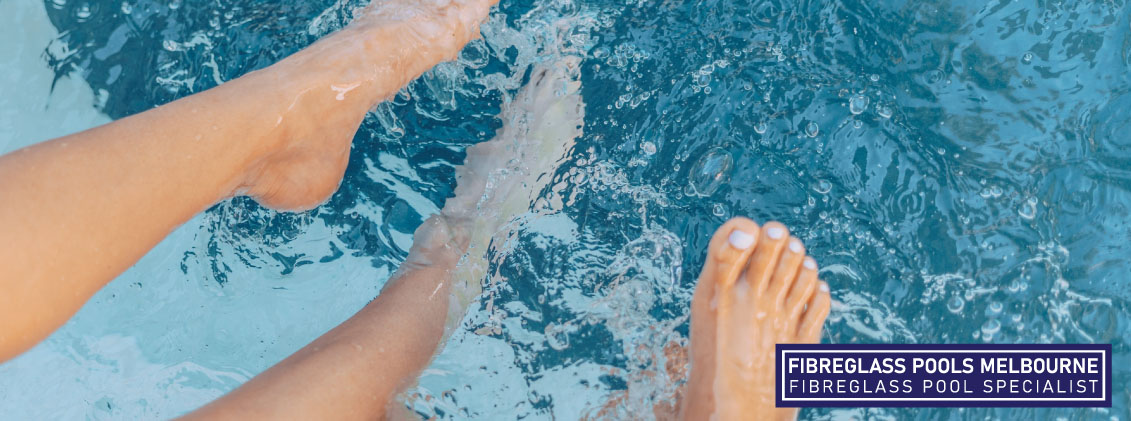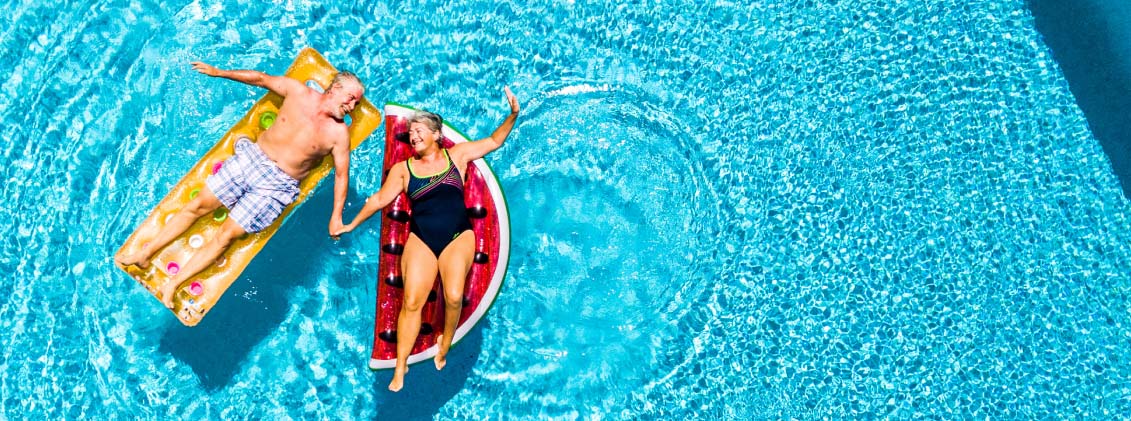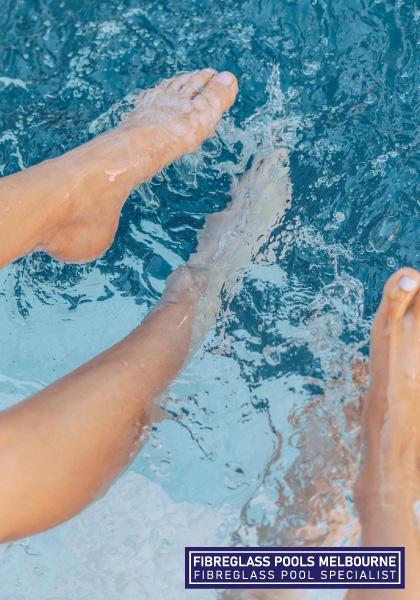Here's What You Can Do If Your Pool Pump Is Surging/Pulsing
You can easily identify if your pool pump is surging or pulsing, just by listening to the sounds it releases. It's not difficult to tell that something might be wrong with your pool pump, and the sound is probably what will first alert you to the fact that there could be a problem.

The sound that you hear from your pool pump should be a hum that's constant. Depending on the kind of pool pump you have, this sound can sometimes also be a roar. Should you notice any kind of change in the noise level coming out from your pool pump, then you should take notice of it.
This noise is usually caused by the flow of water in the pump being intermittent. Air may also have been introduced inside it. This can cause the pump to lose the prime that it has. As a result, the pool pump will reprime itself. Following this, the cycle will repeat once again.
What problems can a pool pump pulsing or surging cause?
There can be a lot of problems caused by a pool pump that pulses or surges. The pulsing sound that you hear is not the biggest problem that you’ll need to deal with. These are some of the problems that you may find yourself dealing with, should your pool pump be pulsing:
- The first problem you could face is that your pump can end up burning out. The motor of your pump can end up burning out when the impeller speed is constantly changed. A pool pump needs water in order to run. This means that if you don’t get the issue fixed soon, then the motor of your pool pump could end up burning out.
- You could also end up dealing with poor circulation as well as a water flow that is low. If the flow of water to the pool pump is intermittent, then the resulting circulation in the pump is poor. As a result, any pool chemicals you add to your fibreglass pool won’t be efficient. Your pool water could even end up turning green or even cloudy.
- You could also need to deal with problems related to the filter pressure. This can also happen when there is water, then air, and then again water, being pumped out of your pool intermittently. Unless there is proper pressure, you won’t be able to filter the water in your pool properly.

Why does a pool pump pulse or surge?
There are three main factors that could cause a pool pump to surge or pulse. These include:
Air leak
The biggest reason why your pool pump could be pulsing could be due to an air leak. When your pool pump creates more pressure, it becomes easier for air to enter the pump. This can happen even from leaks that are minor. Air also provides less resistance than water does. When the air gets sucked in by your pool pump, instead of the water, the pool pump can pulse as a result.
Air leaks aren’t always noticeable. They could be so small that they aren’t perceptible to you. In this case, it would be impossible to find where the air leak is taking place. This is especially as the air is being sucked into the pool pump. If you want to spot the air leak, you can try to apply shaving cream on the fittings that are around the lid of your pool pump. Watch to see if any of the shaving creams are sucked into the pool pump.
The air leak will be located before your pool pump. This is what causes air to get sucked into your pool pump, and the result is a pool pump surge. Should there be leaks after where the pool pump is located, then you’ll instead notice water leaking out. This is due to positive pressure.
These are some locations where air leaks could happen, as well as how you can deal with the situation:
- If your pump lids are leaky, this could cause an air leak. There shouldn’t be any cracks on your pump lids. The area around the O-ring should be smooth as well as undamaged. Sometimes, debris can get stuck on the lid. You’ll need fl clean the lid and re-grease the O-ring to fix the problem.
- If there are fittings that are damaged that are coming into your pump, this could also cause a surge. The vibration of the pool pump could have caused a fitting to become loose. All you need to do in this case is retighten the fitting. If the fitting is cracked or damaged, then you’ll need to replace it.

Low levels of water
The water flow entering your pool skimmer should be constant. Otherwise, your pool pump can surge. To fix this issue, you’ll need to top the pool off with enough water to reach the appropriate water level. You can consider investing in a device for levelling the pool water to ensure that it’s always at the right level. This will help prevent low levels of water from causing pool pump surges.
Skimmer weirs stuck
If the skimmer weirs are stuck completely or partially, then they prevent a constant flow of water from reaching your pool skimmer. The hinges of the weir should be swimming in a smooth manner. If there are doors that are stuck or cracked, then these will need to be replaced.
Suction pipes that are clogged
If you’ve ruled out other possible causes, then the problem could be suction pipes that are clogged. This can happen as a result of everything from leaves to hairballs and even dead bugs. Pool toys that make their way into the skimmer box can also cause this problem. In this case, the obstruction will need to be cleaned to solve the problem.
Conclusion
If your pool pump is pulsing or surging, then this could be due to several reasons. First, you need to isolate what is causing the problem, and then you’ll be able able to fix it. Use this guide to learn what causes pool pumps to pulse or surge, as well as what you can do to fix the problem.
Yes, every pool should have a pool pump as the function is to circulate water in it, as well as move water to other equipment locations like heat pumps, pool filters, etc to make sure you are swimming in safe water. Our friendly team can help you select a pool pump that will benefit your pool, so contact us today!
Pool pumps these days can vary in price, but what really matters is how often the pool pump is running. A pool pump that runs every second day is going to cost less than one that runs every day. The amount of time is is running is also important. Not all pools need to be running for over eight hours a day so shutting off the pool pump after that time should be okay. However, you should clarify this with your local pool installer to be safe.
Here's What You Can Do If Your Pool Pump Is Surging/Pulsing
You can easily identify if your pool pump is surging or pulsing, just by listening to the sounds it releases. It's not difficult to tell that something might be wrong with your pool pump, and the sound is probably what will first alert you to the fact that there could be a problem.

The sound that you hear from your pool pump should be a hum that's constant. Depending on the kind of pool pump you have, this sound can sometimes also be a roar. Should you notice any kind of change in the noise level coming out from your pool pump, then you should take notice of it.
This noise is usually caused by the flow of water in the pump being intermittent. Air may also have been introduced inside it. This can cause the pump to lose the prime that it has. As a result, the pool pump will reprime itself. Following this, the cycle will repeat once again.
What problems can a pool pump pulsing or surging cause?
There can be a lot of problems caused by a pool pump that pulses or surges. The pulsing sound that you hear is not the biggest problem that you’ll need to deal with. These are some of the problems that you may find yourself dealing with, should your pool pump be pulsing:
- The first problem you could face is that your pump can end up burning out. The motor of your pump can end up burning out when the impeller speed is constantly changed. A pool pump needs water in order to run. This means that if you don’t get the issue fixed soon, then the motor of your pool pump could end up burning out.
- You could also end up dealing with poor circulation as well as a water flow that is low. If the flow of water to the pool pump is intermittent, then the resulting circulation in the pump is poor. As a result, any pool chemicals you add to your fibreglass pool won’t be efficient. Your pool water could even end up turning green or even cloudy.
- You could also need to deal with problems related to the filter pressure. This can also happen when there is water, then air, and then again water, being pumped out of your pool intermittently. Unless there is proper pressure, you won’t be able to filter the water in your pool properly.

Why does a pool pump pulse or surge?
There are three main factors that could cause a pool pump to surge or pulse. These include:
Air leak
The biggest reason why your pool pump could be pulsing could be due to an air leak. When your pool pump creates more pressure, it becomes easier for air to enter the pump. This can happen even from leaks that are minor. Air also provides less resistance than water does. When the air gets sucked in by your pool pump, instead of the water, the pool pump can pulse as a result.
Air leaks aren’t always noticeable. They could be so small that they aren’t perceptible to you. In this case, it would be impossible to find where the air leak is taking place. This is especially as the air is being sucked into the pool pump. If you want to spot the air leak, you can try to apply shaving cream on the fittings that are around the lid of your pool pump. Watch to see if any of the shaving creams are sucked into the pool pump.
The air leak will be located before your pool pump. This is what causes air to get sucked into your pool pump, and the result is a pool pump surge. Should there be leaks after where the pool pump is located, then you’ll instead notice water leaking out. This is due to positive pressure.
These are some locations where air leaks could happen, as well as how you can deal with the situation:
- If your pump lids are leaky, this could cause an air leak. There shouldn’t be any cracks on your pump lids. The area around the O-ring should be smooth as well as undamaged. Sometimes, debris can get stuck on the lid. You’ll need fl clean the lid and re-grease the O-ring to fix the problem.
- If there are fittings that are damaged that are coming into your pump, this could also cause a surge. The vibration of the pool pump could have caused a fitting to become loose. All you need to do in this case is retighten the fitting. If the fitting is cracked or damaged, then you’ll need to replace it.

Low levels of water
The water flow entering your pool skimmer should be constant. Otherwise, your pool pump can surge. To fix this issue, you’ll need to top the pool off with enough water to reach the appropriate water level. You can consider investing in a device for levelling the pool water to ensure that it’s always at the right level. This will help prevent low levels of water from causing pool pump surges.
Skimmer weirs stuck
If the skimmer weirs are stuck completely or partially, then they prevent a constant flow of water from reaching your pool skimmer. The hinges of the weir should be swimming in a smooth manner. If there are doors that are stuck or cracked, then these will need to be replaced.
Suction pipes that are clogged
If you’ve ruled out other possible causes, then the problem could be suction pipes that are clogged. This can happen as a result of everything from leaves to hairballs and even dead bugs. Pool toys that make their way into the skimmer box can also cause this problem. In this case, the obstruction will need to be cleaned to solve the problem.
Conclusion
If your pool pump is pulsing or surging, then this could be due to several reasons. First, you need to isolate what is causing the problem, and then you’ll be able able to fix it. Use this guide to learn what causes pool pumps to pulse or surge, as well as what you can do to fix the problem.
Yes, every pool should have a pool pump as the function is to circulate water in it, as well as move water to other equipment locations like heat pumps, pool filters, etc to make sure you are swimming in safe water. Our friendly team can help you select a pool pump that will benefit your pool, so contact us today!
Pool pumps these days can vary in price, but what really matters is how often the pool pump is running. A pool pump that runs every second day is going to cost less than one that runs every day. The amount of time is is running is also important. Not all pools need to be running for over eight hours a day so shutting off the pool pump after that time should be okay. However, you should clarify this with your local pool installer to be safe.


